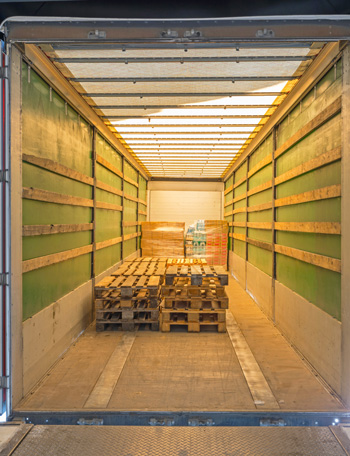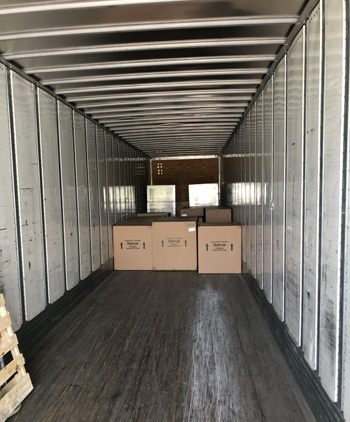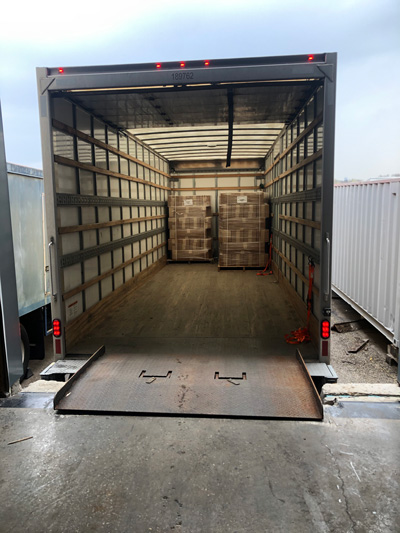- 519-213-1000
- [email protected]
- Mon - Fri: 8:00am - 6:00pm
LTL Shipping
Less-Than-Truckload
Shipping
LTL is a form of shipping where a portion of a trailer is used to move freight. The main reason for this is to reduce the costs associated with wasted space for the shipper and to give the carrier the greatest profit potential for their load. When shipping LTL, the shipper pays for just the space they use, increasing efficiencies in spending. LTL shipping offers various benefits and is an excellent option for many businesses. This blog will outline the benefits of LTL shipping and why it might be good for you.
Benefits of LTL Shipping
Cost
The main benefit of shipping freight LTL is the cost savings that come with it. Due to the freight only using a portion of a trailer, the cost will only reflect that part of the trailer. The overall cost is dependent on various factors but shipping LTL can create cost savings, especially when making small shipments frequently.
Sustainability
Sustainability is a huge aspect of our world today and finding ways to minimize environmental impact is vital. The transportation industry has taken steps as of late to use vehicles that are more fuel efficient and implement procedures that help make moving freight a cleaner process. LTL shipping is a part of this process and is a more environmentally friendly option then FTL shipments. The reason for this being that many shipments are pooled together on one vehicle rather than using several to do the same job. This is a major benefit of LTL shipping and as technology continues to increase in vehicles, LTL will continue to take steps in creating a more environmentally friendly industry.
Reduce Operational Costs
Shipping LTL can help reduce operating costs for businesses. LTL shipping allows businesses to move products out at shorter intervals, reducing the need for warehousing. Along with this, products being shipped out at shorter intervals can lead to more satisfied customers and a better reputation.

Widespread Accessibility
The accessibility to dry van trailers and their benefits allows for the LTL shipments to be connected to an efficient carrier that will get the job done right. As seen in the Wood-Hall Logistics blog on dry vans, they are the most produced trailer type. This creates widespread coverage of lanes and increases access to LTL carriers.
Tracking
LTL shipping has tracking benefits due to the various pickups and drop-offs that occur throughout transit. LTL carriers have numerous shipments on their trailers and they can make several stops throughout the route. Throughout these steps, the tracking team is updated on the trailer location and this information is passed on to the customer. This provides greater peace of mind and helps make the delivery process smooth.
Determining an LTL Rate
Distance
The first determining factor is the distance needed to be travelled. In most cases, the further the distance, the higher the cost. Certain destinations can come with higher rates if they are far out of the realm of normal lanes.


Dimensions
The dimensions of the skids are important to determine the number of skid spots needed. Standard skids (48*40) usually come at the lowest price. Additional charges will apply for larger skids or loose freight. It is important to provide exact dimensions to ensure that extra charges don’t apply for unexpected changes in skid size.
Weight
The weight of the freight plays a part in the cost but is also important for the loading process. Carriers are restricted to a certain amount of weight per foot and the number of axles they have plays a part in how much weight they can handle. Providing the correct weight of a shipment ensures that carriers can safely move the freight while staying within the regulations.
Skid Count
The final key determining factor in an LTL rate is the number of skid spots. LTL carriers base their loads on the number of skids coming from each shipper. The LTL system is heavily based on space used in a trailer so it is key to know the exact amount of space needed.


Variables
Expedited
Expedited shipments will come with a greater cost as there is a greater pressure on the carrier to put that shipment as the priority of the loads.
Detention
When drivers are delayed at pickup, some additional charges may occur.
Truck Ordered Not Used (TONU)
When a carrier is set for a pickup that is cancelled last minute, there may be a charge for the truck order not used. This varies by carrier and specific outlines can be found in the carrier package.
Inside Delivery
When a shipment requires delivery inside of a business, additional charges may apply. This can be attributed to additional equipment, time or staff needed to make the delivery.
Conclusion
LTL shipping provides various benefits and can be important in increasing the profit margins of a business. Quality LTL carriers continue to join the market and the presence of trucks throughout North America has grown, allowing for greater access to more remote locations at more affordable rates. The growth of the industry has benefits across the entire market and opportunities to ship with reputable carriers will continue to grow.
We thank you for your time. We are always open to answering any questions and work our hardest to provide great services to our customers. Reach out to us today through [email protected] or give us a call at 519-213-1000!
The Team at ShipOntario,
A Division of Wood-Hall Logistics
LTL Shipping